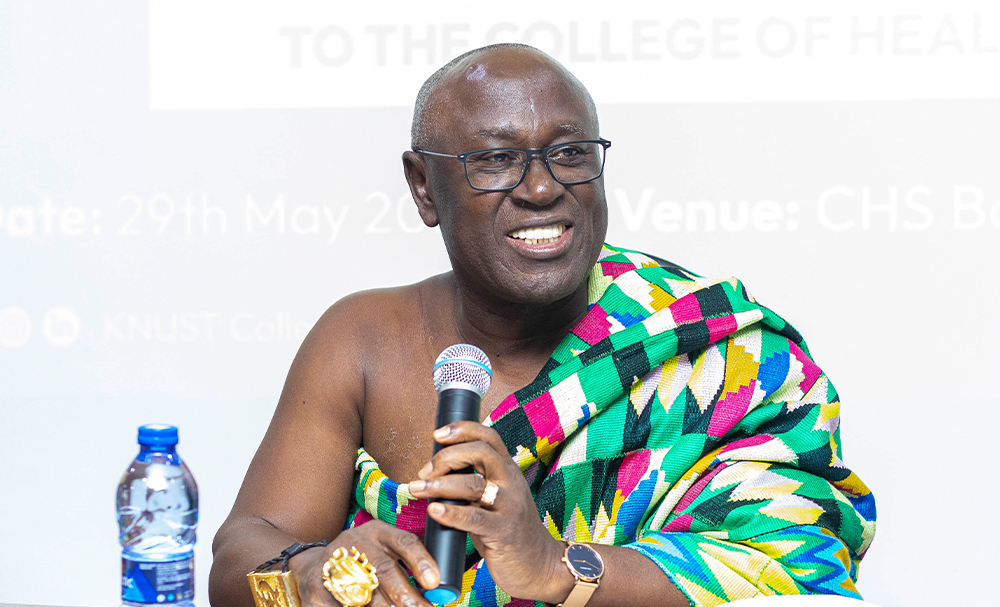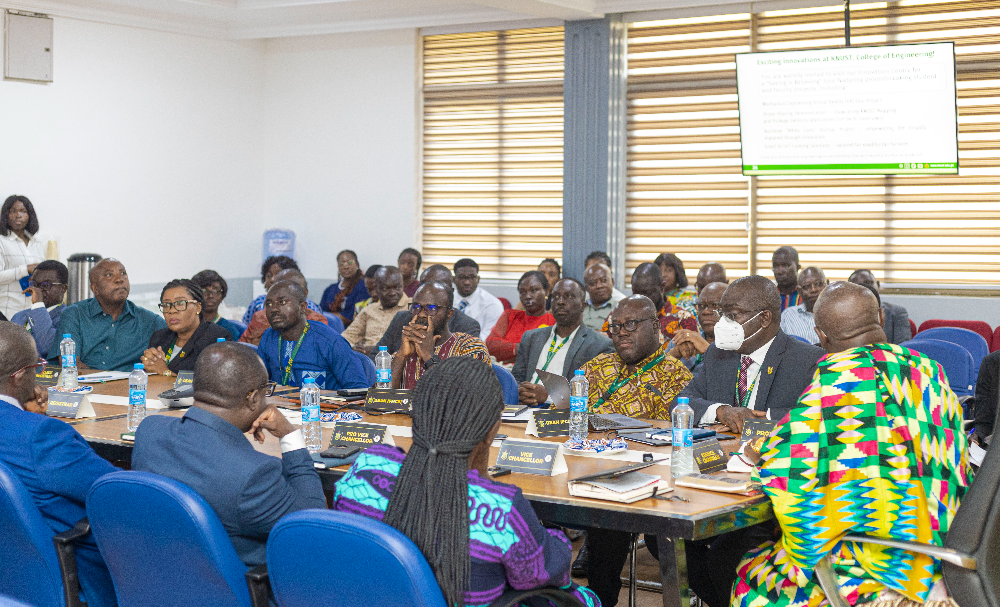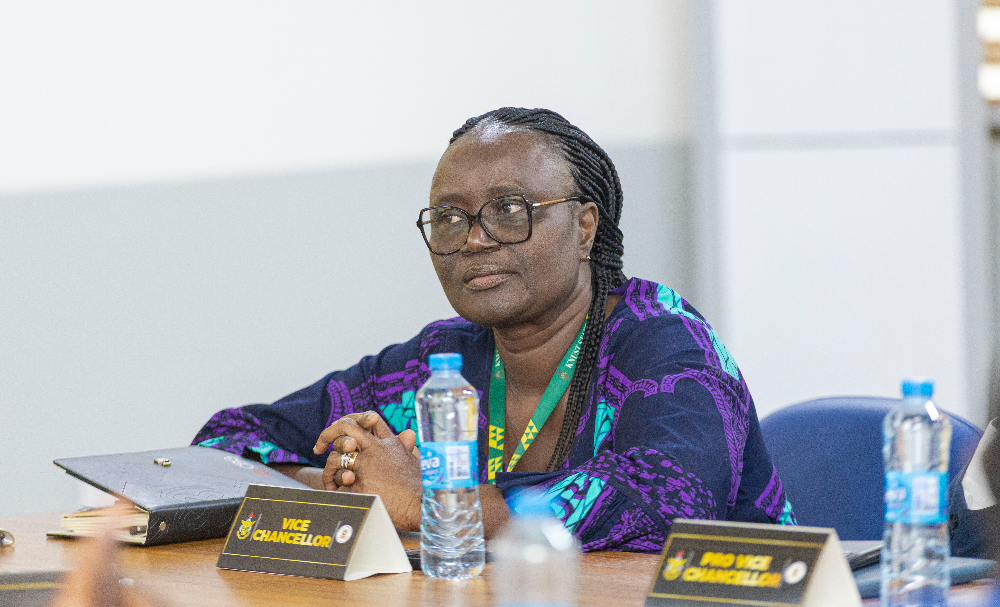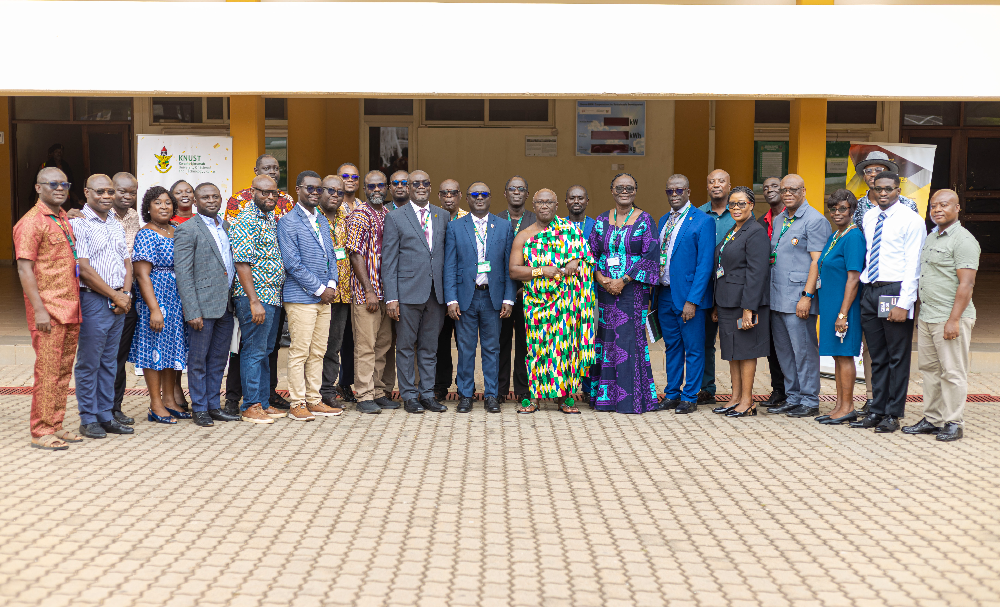The Chairman of the Governing Council of the Kwame Nkrumah University of Science and Technology (KNUST), Kumasi, Akyamfour Asafo Boakye Agyemang-Bonsu, has challenged the University’s College of Engineering to take a continental lead in deploying Artificial Intelligence (AI) across all disciplines and in national development initiatives.

“Every part of Engineering has no excuse but to embrace AI,” he charged during a meeting with the College Board, describing AI as a key driver of Africa’s development.
The Council Chair highlighted AI's potential not only for innovation but also for income generation for the university.
He tasked the College with developing AI-driven tools, including systems capable of transcribing local language speeches and documents into English, a move he believes could improve access to justice.
He further urged the College to leverage partnerships with industry and other universities to support national development efforts.
“Engineering is the basis for development,” he emphasized. “Let’s create the enabling environment. Our thinking must be unconstrained.”
Akyamfour Agyemang-Bonsu commended the College for its collaborative initiatives and advised against working in isolation.
“That mindset of working in silos will not yield good outcomes for the country. Once collaboration thrives, we’re certainly on the right path,” he said.
He further charged the College to focus on emissions referencing his involvement in work on emission standards for the transport sector, which has implications for public health.
He also urged the College to intensify research into green hydrogen production, biomass gasification, and other clean energy solutions, stressing the importance of tapping into global climate finance mechanisms.
Additionally, he called on the College to lead the development of legal frameworks and policy support for their innovations, particularly in green technologies.
In his presentation, Professor Biritwum Nyarko, Provost of the College, outlined current achievements and future plans. He highlighted key initiatives from centres such as the Brew-Hammond Energy Centre and Engineering Innovation Centre, alongside progress in infrastructure, ICT, and external partnerships.
Professor Nyarko announced that the College is reviewing its strategic priorities, including a plan to restructure its academic model into five major units to better align with emerging challenges and opportunities.
“We are in the process of revising our strategic plan to ensure it reflects global trends and national priorities,” he stated, noting the critical role of resource allocation in driving these reforms.
The provost supported the Council Chair’s call for an AI transformation, proposing a university-wide AI strategy in which all programmes would integrate AI components.
Akyamfour Agyemang-Bonsu encouraged the College to remain focused on producing graduates who are ready for the job market, and faculty whose research contributes to societal transformation beyond academic advancement.
“Your research must go beyond promotion. It must drive solutions for real-world challenges,” he stated.

The Vice-Chancellor, Professor (Mrs.) Rita Akosua Dickson, echoed her "One Department, One Start-Up" initiative, highlighting the importance of empowering departments and startups to reignite the entrepreneurial spirit that fosters employable graduates.
“We have no choice. We must consciously work on this. It’s a global challenge, but we are feeling it acutely because of the large number of students we are producing. It’s something that must challenge and move us,” she said, emphasizing the urgency of preparing students for current job market demands.
The Council Chair concluded the visit with a tour of the College’s Engineering Innovation Centre, where he inspected ongoing innovations.

















